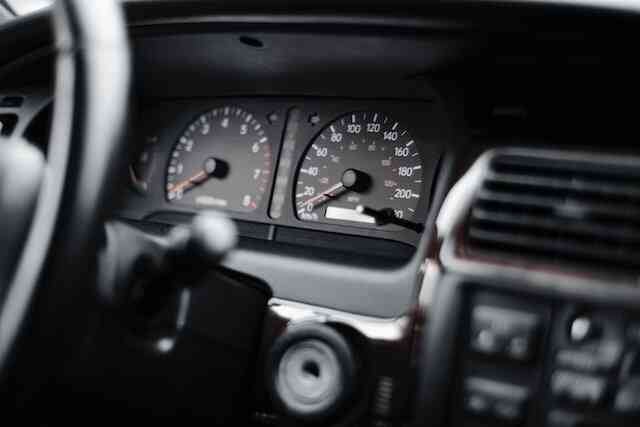UK'S MOST COMPREHENSIVE CAR HISTORY CHECK ONLY £9.99

Have you ever wondered whether mileage really matters when buying a used car? There’s a lot you might need to think about in this regard, and this can leave many people feeling a little unsure about whether the car they’ve picked out is worth the price. Luckily, we’ve outlined some of the key things you need to know about mileage when buying a used car; hopefully, this will help you ascertain the most effective strategy for your own buying goals going forward.

Does mileage matter when buying a car? It’s one of those tricky questions to answer since there’s no clear-cut way to say for certain. After all, buying a car comes with many important decisions – and while mileage doesn’t really matter in terms of whether or not you buy (usually), it will absolutely impact the vehicle’s value.
A low mileage car will usually mean the vehicle’s systems haven’t had too much wear and tear yet. In other words, if the vehicle doesn’t have much mileage, it won’t have done too much hard work, and things should (in theory) be working efficiently.
As a vehicle’s mileage begins to add up, the chance of issues arising becomes much greater. Greater mileage indicates that the vehicle has been used more heavily, and this likely means that the engine and any other moving parts will likely have begun to experience a greater degree of wear. That’s not to say that they will necessarily be out of commission, of course – but a vehicle with more miles on the counter will likely need more in the way of repairs and upkeep than a lightly used model.
One of the simplest things you can do before purchasing a vehicle is to get a car mileage check done. This will reveal the vehicle mileage history using various sources such as MOT, BVRLA (British Vehicle Rental and Leasing Association), NAMA (National Association of Motor Auctions), RMI (Retail Motor Industry Federation), and DVLA. This will give you greater reassurance that the mileage on the vehicle is genuine and hasn’t been tampered with.
The government is aware of the rise in mileage fraud and therefore is asking for ideas on how to prevent mileage fraud with the changes to MOT testing.
If you own a bike and would like a mileage check, you can carry out a bike check to instantly reveal the full history report.
If you’re buying a car with lots of miles already on the count, you’ll likely want to pay less for the car. Since the amount of work typically tends to add up as the mileage increases, more expenses will likely be involved with a car that’s already done a lot of heavy lifting. And so, you’ll want to ensure the price you pay accounts for potential works needed.
It’s also worth remembering that only so long will a car continue to run. As such, a vehicle that’s already done tens of thousands of miles may have a much shorter lifespan, which will again impact how much you’ll likely want to pay. At some point, there will come a time that it’s either impossible or not cost-effective to continue repairing the car.
It’s easy to look at mileage alone, but there’s more to this than it might seem at the outset! For example, a car that’s done a lot of heavy-duty work (such as towing) will likely have experienced more wear and tear than a comparable mileage vehicle that’s just been driven gently. As such, when deciding how much mileage matters, try to understand how the car has been used before committing to it.
Let’s face it – buying a used car comes with a lot of important questions to ask, and just one of these is regarding the vehicle’s mileage. Indeed, while there’s absolutely nothing wrong with buying a car that has a lot of mileage already clocked up, this will undeniably increase the wear and tear on the vehicle. And so, ideally, you should aim to check mileage carefully to determine whether or not the car is the right one for you.
Simply enter your registration plate or VIN number to carry out a detailed mileage history check and gain total peace of mind on your next purchase.